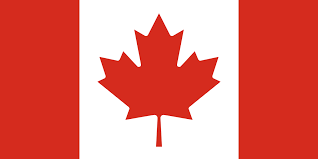Source: Toronto Sun
At the United Nations COP28 meetings taking place in Dubai, the Trudeau government just announced plans to tackle climate change by reducing emissions from cow burps and manure. It’s the latest in a series of climate change announcements made by Environment Minister Steven Guilbeault at the global climate conference and just like the others, it will cost you.
The plan at this point is to provide farmers and ranchers raising beef cattle with credits for reducing methane emissions. Those credits could then be sold to other companies who need to reduce emissions but haven’t done so.
The increased cost to you won’t be due to the carbon tax being applied to beef cattle, at least not yet, though New Zealand introduced a tax on beef and sheep last year to try to cut emissions and activists would like Canada to do the same. Such a tax won’t apply at this point, but you can easily imagine the Trudeau government introducing one at some point in the future.
Instead, the increased costs will come from changing the diets of beef cattle to meet the government’s demands for lower methane emissions.
There are various ways to lower methane emissions using diet but all of them will come with a cost. Increasing the amount of corn silage fed to the herd and decreasing the use of hay can reduce methane emissions, as can adding in certain types of seaweed or other types of chemical additives.
All of these options cost more than current practices.
What’s ironic is that these changes will push back against the trend in the beef industry over the last several years that has seen consumers willing to pay a premium for grass-fed beef due to health concerns. Grass-fed beef is lower in saturated fats, and has more Omega 3 fatty acids and higher levels of some nutrients.
Now, the government wants us to eat less of that kind of beef for the health of the planet.
The people who will be hurt the most from these changes, though, will be those at the bottom of the economic ladder. Those who can least afford beef right now will find it less affordable in the future.
That doesn’t matter to Guilbeault, he leads a jet-setting lifestyle paid for by you. We pay his salary, we pay for his airfare to these climate change conferences, we pay for his registration fees and the food that he eats while he’s there.
He isn’t going to notice an increase in prices, you will.
The Trudeau government has already increased food prices through their existing carbon tax, a claim the government denies but that Sylvain Charlebois has demonstrated is true. Beyond the carbon tax, and the clean fuel regulations which are also pushing up the cost of transportation, the Trudeau government is pushing other policies that could push up the price of food.
Their goal of reducing nitrogen emissions from fertilizer use would have seen significant impacts on farm production and food prices. The government’s goal of reducing emissions to 30% below 2020 levels by 2030 was deemed unrealistic by the agricultural sector and the government retreated to a voluntary program in the face of deep resistance.
The Trudeau government is out of touch with average Canadians and can’t see the impact their policies are having on day to day life. Increasing the cost of food in the name of saving the planet may sound good to academics building climate models but, politically, it will have a disastrous impact on Trudeau’s government.














